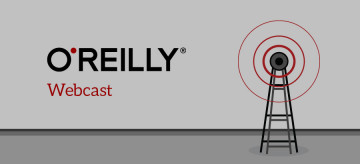- Advertising
- Bare Metal
- Bare Metal Cloud
- Benchmarks
- Big Data Benchmarks
- Big Data Experts Interviews
- Big Data Technologies
- Big Data Use Cases
- Big Data Week
- Cloud
- Data Lake as a Service
- Databases
- Dedicated Servers
- Disaster Recovery
- Features
- Fun
- GoTech World
- Hadoop
- Healthcare
- Industry Standards
- Insurance
- Linux
- News
- NoSQL
- Online Retail
- People of Bigstep
- Performance for Big Data Apps
- Press
- Press Corner
- Security
- Tech Trends
- Tutorial
- What is Big Data
Is It Time for Our DB Administrator to Delve Into NoSQL?
Along with all of the media and blogging buzz about big data, NoSQL databases have crept into the headlines. Many proponents of big data are adamant that you can't really delve into big data without getting started with NoSQL too. Is it time to get your database administrator trained and ready to crank up a NoSQL database?

Along with all of the media and blogging buzz about big data, NoSQL databases have crept into the headlines. Many proponents of big data are adamant that you can’t really delve into big data without getting started with NoSQL too. Is it time to get your database administrator trained and ready to crank up a NoSQL database?
What is NoSQL?

SQL databases are relational and deal with schematics. Conversely, NoSQL databases do not use a relational model, and are schema-less. NoSQL is mostly open source, though not exclusively, and built with modern Web architectures in mind. One of the most prominent differences is that NoSQL runs well on clusters, unlike its relational ancestor. It isn’t necessary to convert structures in memory to a relational structure, making NoSQL ideal for storing and retrieving unstructured data.
The term “NoSQL” started as a hashtag used to discuss its development and is short for “Not Only SQL.” NoSQL is better suited for enormous quantities of data, data that is heterogeneous (varied in type and coming from disparate sources), and data that needs to be readily and instantly accessible to lots of different users on many different computers and devices.
What is NoSQL Useful for?
NoSQL is a much better database model for big data, such as the unstructured data generated by social media posts, likes, shares, follows, comments, etc. It offers tremendous write performance and super fast access. When accessibility is more important than reliability, NoSQL is a clear winner.
Though NoSQL requires programmers and developers to think much differently about the data and storage than does SQL, it does offer easy maintenance, administration, and operations. In circumstances where you simply can’t allow a single point of failure to bring everything down, NoSQL is ideal.
NoSQL is also an excellent choice for parallel computing, and is relatively easy for experienced programmers to learn once they understand how it works differently and handles data differently than SQL.
Since NoSQL performs much better in a cluster environment than does its counterpart, it works great for situations when data sprawl becomes an issue. For example, in addition to massive data gathering, processing, and storage on a daily basis, social media platforms also have to plan for a highly scalable future, as these data streams multiply quickly and significantly. NoSQL is great for offering this scalability and flexibility on clusters.
When is NoSQL Not a Good Solution?

Though practical and useful in many situations, there are times when SQL outperforms. NoSQL is not the best model for OLTP, ad hoc queries, complicated relationships among the data, and situations when stability and reliability outweigh the importance of speed.
If a NoSQL database sounds like the best solution for your situation, consider the power, speed, and flexibility of the Full Metal Cloud.
Readers also enjoyed:

Bigstep presents O'Reilly webcast on getting the most from a NoSQL DB


Leave a Reply
Your email address will not be published.